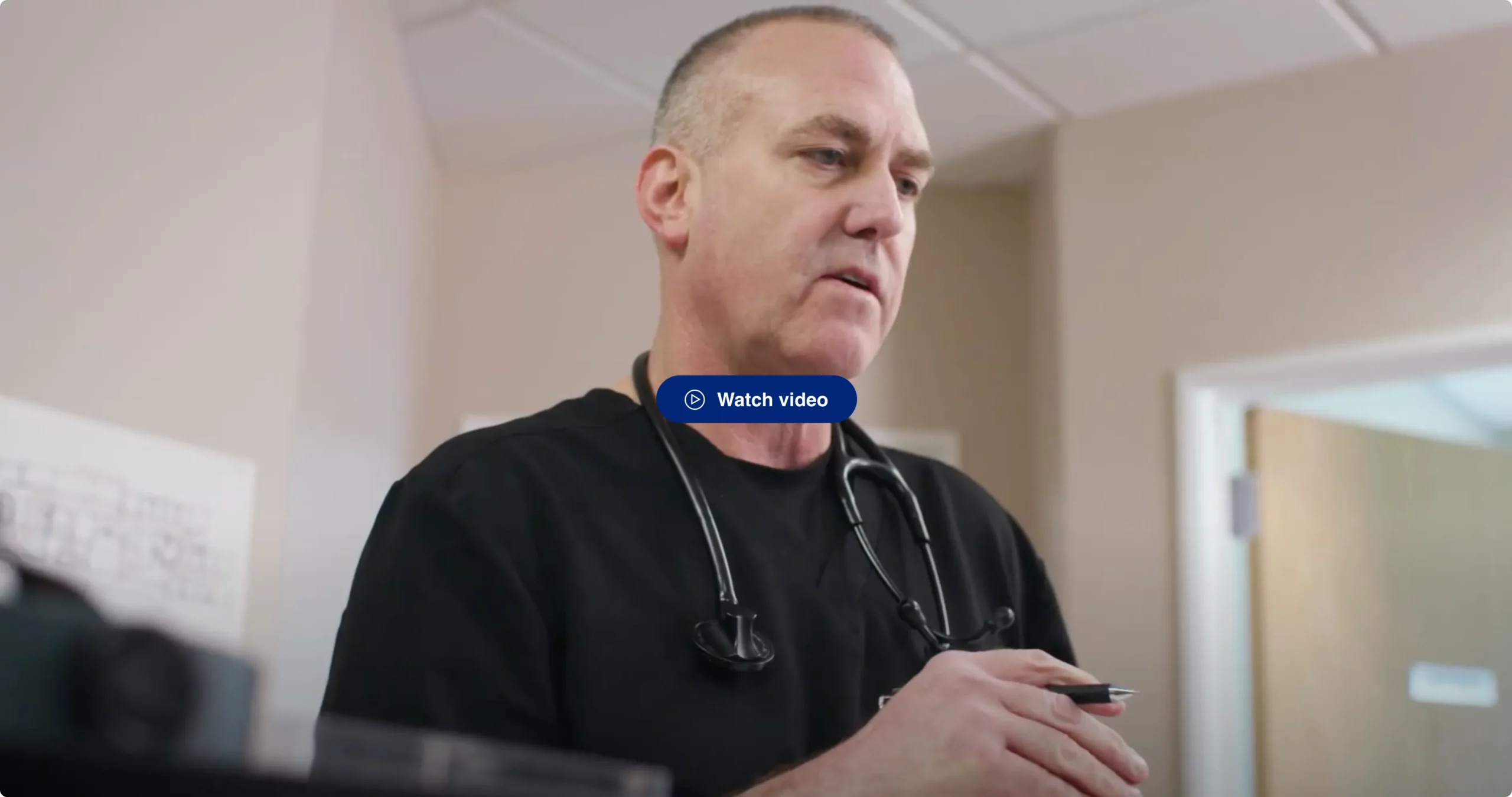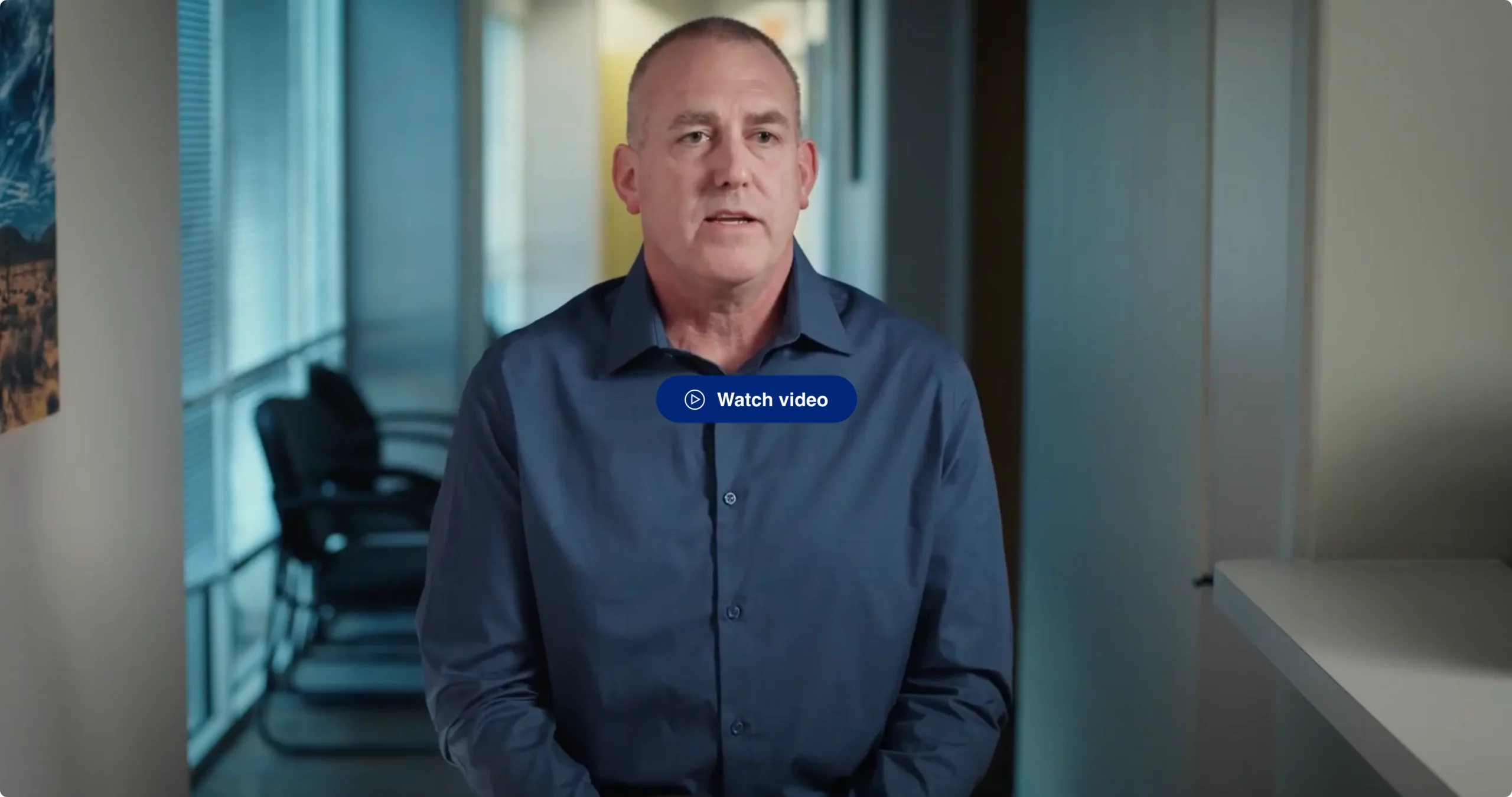Clinical outcomes
Reconnecting providers with the joy of clinical practice through value-based care
Author and Expert:

Dr. Frank
Share :

Myth: Value-based care requires time outside of direct care that isn’t compensated and increased patient loads
Daniel Frank, MD, the chief clinical officer for Optum Health, has experienced firsthand what it’s like to not have enough time to spend with each patient who needed his care.
“It is demoralizing and challenging to know your patients need more of your time and guidance than you are able to provide,” said Dr. Frank. “This is a frequent challenge experienced by providers when seeing patients in a traditional fee-for-service (FFS) model.”
As a family physician practicing in south Florida, he knew there had to be a better way to practice medicine. He was later given the opportunity to leave his fee-for-service environment and join an integrated value-based care (VBC) practice at Southwest Medical Associates located in Las Vegas, Nevada.
According to Dr. Frank, he jumped at the chance to join a practice moving to value-based care because he knew it would give him an environment to focus on treating his patients holistically.
“In my early years of practicing medicine in a traditional FFS construct, I remember feeling frustrated when a patient would come in for one issue, and it was clear that there were others we should address as well. But our model didn’t allow for that, ” said Dr. Frank. “It was more about how many patients I was seeing versus why I went into medicine in the first place—to help patients live their healthiest lives. So, when I was given the opportunity to join a practice model that allowed for comprehensive patient care, I took it.”
Dr. Frank’s time at Southwest Medical Associates not only changed how he practiced medicine but also sparked a passion for helping other provider groups adopt VBC models, eventually leading to his role at Optum Health.
Moving from widgets to outcomes
One of the key tenets of VBC is to shift the focus of physician incentives from volume to outcomes. According to Dr. Frank, it’s a change in mindset in addition to a reimbursement shift.
“If you think about it, in a traditional fee-for-service model, providers are basically reimbursed for cranking a wheel or turning a widget, ” continued Frank. “Whether that’s in terms of relative value units (RVUs), time or a very specific CPT code, it’s all very transactional. The beauty of a VBC model is it gets providers out of the widget space and allows us to focus on the whole patient, which is why most of us got into medicine in the first place.”
In a VBC model, Dr. Frank says providers are rewarded for helping patients achieve their best health outcomes.
“If you really step back from it, VBC means taking care of the patient holistically and providing the care they need to live their best and healthiest life,” continued Frank. “VBC is freeing because it simplifies the constructs of providers billing for their time and gives them the resources they need to deliver complex care for each patient. By providing comprehensive care for a population that improves health outcomes, providers are, in many cases, getting reimbursed more than when they were focusing on the widget.”
Holistic care takes a village
For patients to achieve their health goals, they often need access to resources outside of the doctor’s office. Whether it’s transportation, financial assistance for medication or social work, it takes a team to help patients follow their care plan.
“In a successful VBC model, there’s a community all working together to deliver holistic care,” said Frank. “With a team of social workers, care navigators, pharmacists, additional nursing and medical assistance staff, providers aren’t alone in addressing the complex needs of the patients they serve.”
When these teams and resources are coordinated, the overall care experience for the patient improves. Additionally, by sharing data and increasing transparency, care teams can provide quality evidence-based patient interventions for the right patient, at the right time.
Transformation reaps rewards
With the ability to offer more resources to patients and providers, both parties experience the benefits, including improved engagement and outcomes. According to Dr. Frank, more resources also reduce provider burnout.
This is demonstrated through net promoter scores (NPS), the industry standard measure of customer experience and loyalty. In a 2021Rather than directing him to a surgical option with higher risk and significant downtime, our value-based model ensured we explored other treatments that in the end, produced excellent results.2022 NPS survey, provider groups predominately involved in VBC had a satisfaction score of 76 while groups in FFS ranged in the low 50s to high 60s, increasing toward 70 as their percent of membership in value-based arrangement increases.
“In VBC models, providers are able to reconnect with the joy of clinical practice,” said Dr. Frank. “While it may seem daunting or uncertain at first, in the end, VBC lets providers focus on the best care for their patients and gives them the resources they need to address all of the complexities that go into comprehensive patient care.”
According to Dr. Frank, the transition to VBC isn’t a maybe; it’s a must for our health care system.
“VBC is the future of health care in the United States, ” added Dr. Frank. “If we don’t change something, health care expenditures will continue to be unsustainable and provider burnout will only grow. VBC by definition gets back to what’s in the best interest of the patient. And if we keep that at the center of care, all parties benefit in the end.”
About Optum Health
Optum Health is dedicated to bringing all parts of the health-care system together to make simpler, more effective and more affordable care available to everyone, when, where and how they need it.
About Daniel Frank, MD
As chief clinical officer (CCO) of Optum Health, Dr. Frank oversees the clinical strategy and value-based care approach across the Optum Health businesses, including its centers of excellence focused on quality, affordability, complete and accurate documentation and risk.
His career with Optum began in 2008 at Southwest Medical Associates in Las Vegas, Nevada, where he served as a primary care physician and medical director. Before joining Southwest Medical, he was in private practice in south Florida.
Dr. Frank received his bachelor’s degree in microbiology at the University of Florida and his medical degree from the University of Miami, Miller School of Medicine. He completed his residency in family practice at Jackson Memorial Hospital in Miami where he became board certified in Family Medicine.
Related topics

Dr. Tony Alamo, EVP Clinical Advocacy and Gov’t Affairs, Optum Health
Dr. Tony Alamo talks about the benefits of transitioning to value-based care.

Dr. Benito Calderon, Contracted Clinician with Optum Network In Nevada
Dr. Benito Calderon talks about his experience with Optum Network.

Dr. James Corcoran, Contracted Clinician with Optum Network In Arizona
Dr. James Corcoran talks about his experience with Optum Network.

Improving financial performance
Learn how education and programs help you accurately capture and document patient needs, leading to improved financial stability.

